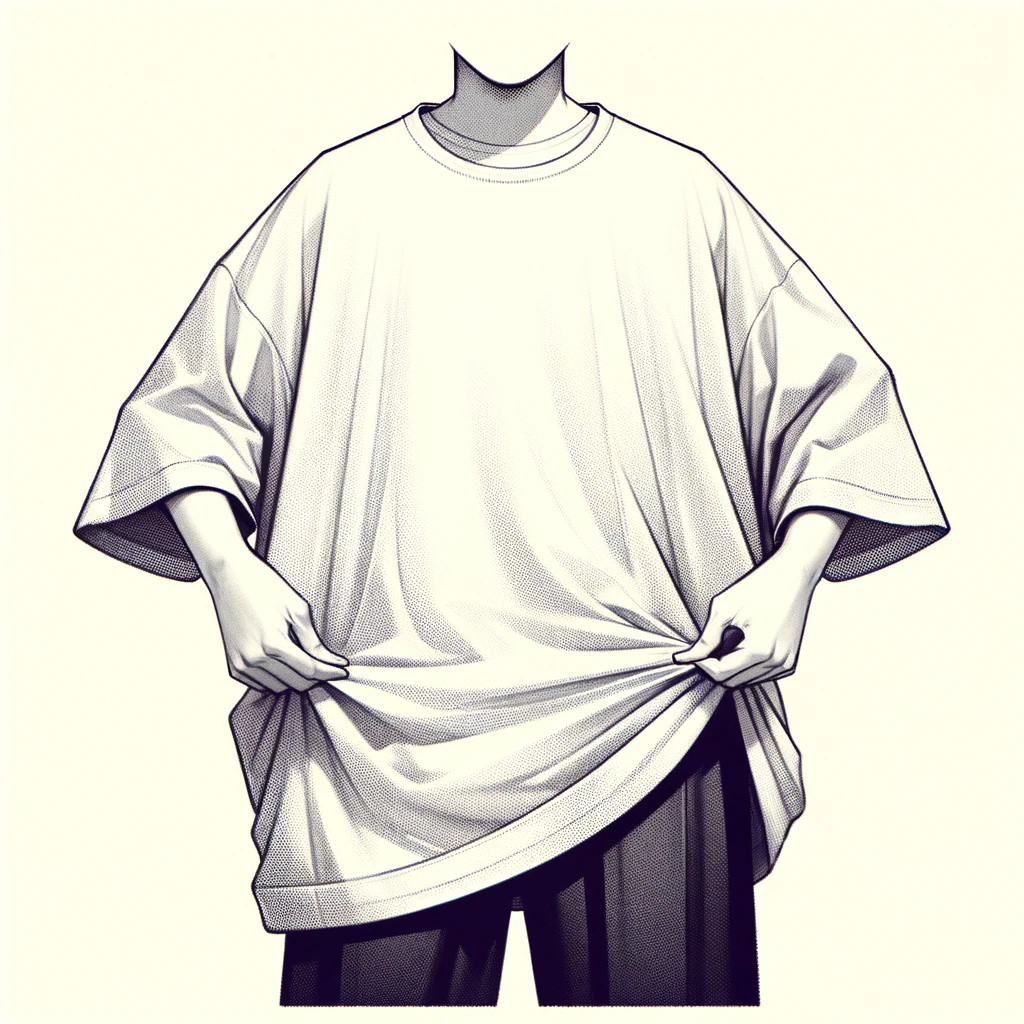
Lose vs loose
The editing experts at Editly have become masters of commonly confused words over the course of their careers as editors, proofreaders, and rewriters. In Editly Etymology, they tap into their own experience to offer a closer look into the horrifying beauty of the English language. This installment investigates one of the most oddly confused word pairs of the modern age: loose vs lose.
(I mean, seriously, look at that picture up there. Do these two words seem the same to you?)
Lose Definition
Lose is a verb that means to stop having something or to fail to win.
Loose Definition
Loose is an adjective that means not tight.
Did you catch that? Just to make sure, let’s ask AI to help us generate a visual representation of each of the words.
Lose = stop having or fail to win.

Loose = not tight.

Lose Root
Old English.
Loose Root
Middle English: from Old Norse, of Germanic Origin.
Who is to Blame for this Confusion?
As lose was born into English, I think it’s safe to say that the real culprit here are the Germans, who gave it to the Vikings, who then offered it to the English—along with pillaging. Good job, Germans.
AI Text on Lose
The word "lose" has a long and interesting history, stemming from its Old English origins to its current usage in modern English. Let's explore its etymology and historical development.
Old English Origins
The verb "lose" comes from the Old English word "losian," which meant to be lost, perish, or destroy. It was derived from the Proto-Germanic *lusōną, which had a similar meaning. The root of these words, in turn, comes from the Proto-Indo-European *leu-, which is thought to mean to cut off, separate, or loosen. This connection suggests that the original concept behind "lose" was related to the idea of something being separated from its owner or original place, leading to a loss.
Middle English Development
As the English language evolved through the Middle Ages, "lose" underwent phonetic and semantic changes. In Middle English, it was spelled in various ways, such as "losen," "lousen," and "lusen," among others. During this period, the word expanded to include meanings related to failing to win (as in a game or battle) and misplacing something. The transition from Old to Middle English saw the word becoming more versatile in its usage, aligning closer to how it is used today.
Modern English
By the time Modern English emerged, the spelling had stabilized to "lose," and its meanings had broadened further. Today, "lose" is used in a wide array of contexts, including losing an item, losing one's way, losing a game or contest, and experiencing loss in a more abstract sense, such as losing time or losing oneself in an activity.
The historical development of "lose" reflects broader patterns in the evolution of the English language, including phonetic changes, shifts in spelling conventions, and semantic broadening. This evolution is emblematic of how words can grow and change over time, adapting to new contexts and ideas while retaining echoes of their original meanings. (306 words)
Humanization of AI Text on Lose
From its Old English origins to its current usage in modern English, “lose” has a fascinating etymology.
Old English Origins
The verb "lose" comes from the Old English word "losian"—meaning to be lost, perish, or destroy—from the Proto-Germanic *lusōną of similar meaning. Their root, in turn, originates from the Proto-Indo-European *leu-, thought to mean to cut off, separate, or loosen. This connection suggests that the original concept of "lose" related to something being separated from its owner or original place.
Middle English Development
As English evolved through the Middle Ages, "lose" underwent phonetic and semantic changes. In Middle English, it was spelled in various ways, including "losen," "lousen," and "lusen." Moreover, the word expanded to include meanings related to failing to win (as in a game or battle) and to misplacing something, aligning closer to its current usage.
Modern English
Modern English saw the spelling stabilized to "lose," even as its meanings broadened. "Lose" is now used in a wide array of contexts, including losing an item, losing one's way, losing a game or contest, and experiencing abstract loss such as losing time or losing oneself in an activity.
The historical development of "lose" is emblematic of how words can adapt to new contexts and ideas, while retaining echoes of their original meanings. (215 words)
Effects of Humanization
The work of AI text humanization has retained the meaning of the original text, while making it more readable, more focused, and more dynamic. It has done so, in part, by eliminating repetition and thereby reducing the word count from 306 words to 215 words—or almost a 30% reduction.
AI Text on Loose
The word "loose" also has an interesting history, tracing its origins back to Old English and undergoing various changes in spelling and meaning over the centuries.
Old English Origins
"Loose" originates from the Old English word "lōs," which meant free or released from something. It is derived from the Proto-Germanic *lausaz, which had similar meanings related to being free, unbound, or released. The Proto-Germanic root itself comes from the Proto-Indo-European *leudh-, which is associated with the idea of growing apart or separating. This etymological background suggests that the core concept of "loose" has always revolved around the idea of separation or freedom from restraint.
Middle English Development
In Middle English, the word was spelled in various ways, including "lose," "lous," and "loose," reflecting the phonetic changes and dialectal variations of the period. During this time, "loose" began to be used more broadly to describe things that were not tightly fastened or constrained, as well as the act of setting something or someone free. The semantic expansion of "loose" during the Middle English period laid the groundwork for its modern meanings.
Modern English
In Modern English, "loose" has several meanings, including not being tightly or securely in place, not being strictly bound by rules or conventions, and the act of releasing something or setting it free. The word can be used in various contexts, from describing the physical state of objects (like loose clothing or a loose tooth) to more metaphorical or abstract uses (like a loose interpretation of a rule).
The distinction between "loose" and "lose" has become clearer over time, with "loose" primarily relating to the state of being unbound or free and "lose" relating to the act of misplacing something or failing to win. The evolution of "loose" illustrates how English words can develop multiple layers of meaning over time, influenced by shifts in pronunciation, spelling, and usage.
Overall, the history of "loose" reflects the dynamic and adaptable nature of the English language, showcasing how words can evolve to meet changing needs and contexts while retaining a core connection to their original roots. (345 words)
Humanization of AI Text on Loose
The word "loose" also has an interesting history, with various changes in spelling and meaning over the centuries.
Old English Origins
"Loose" originates from the Old English word "lōs"—meaning free or released from something—from the Proto-Germanic *lausaz, which had similar meanings. The last originated from the Proto-Indo-European *leudh-, associated with the idea of growing apart or separating.
Middle English Development
In Middle English, the word was spelled in various ways, including "lose," "lous," and "loose." Furthermore, its usage spread to describe things not tightly fastened or constrained, as well as the act of setting something or someone free.
Modern English
In Modern English, "loose" has several meanings, including not tightly or securely in place, not strictly bound by rules or conventions, and the act of releasing something or setting it free. The word can be used to describe physical states (like loose clothing or a loose tooth) and more abstract states (like a loose interpretation of a rule).
At the same time, the distinction between "loose" and "lose" has become clearer over time, with "loose" primarily relating to the state of being unbound or free and "lose" relating to the act of misplacing something or failing to win.
Overall, the history of "loose" showcases how words can evolve to meet changing needs and contexts, while retaining a connection to their original roots. (224 words)
Effect of Humanizing the AI Text
Humanization has affected the AI text significantly, making it more concise through better diction and the elimination of repetition. This concision can be measured mathematically, as humanization has reduced the word count from 345 words to 224 words—or by a full 35 percent.
Whether it’s for lose or loose, the best AI humanizer does, in fact, turn out to be a human. So, if you need any help to humanize your AI text, don’t wait to get started on Editly.


Paul S.
Online editing, proofreading, and rewriting for both human and AI text. Specialties include admissions essays, academics, business, blogs, and ChatGPT to human text. Chief editor at Editly AI.